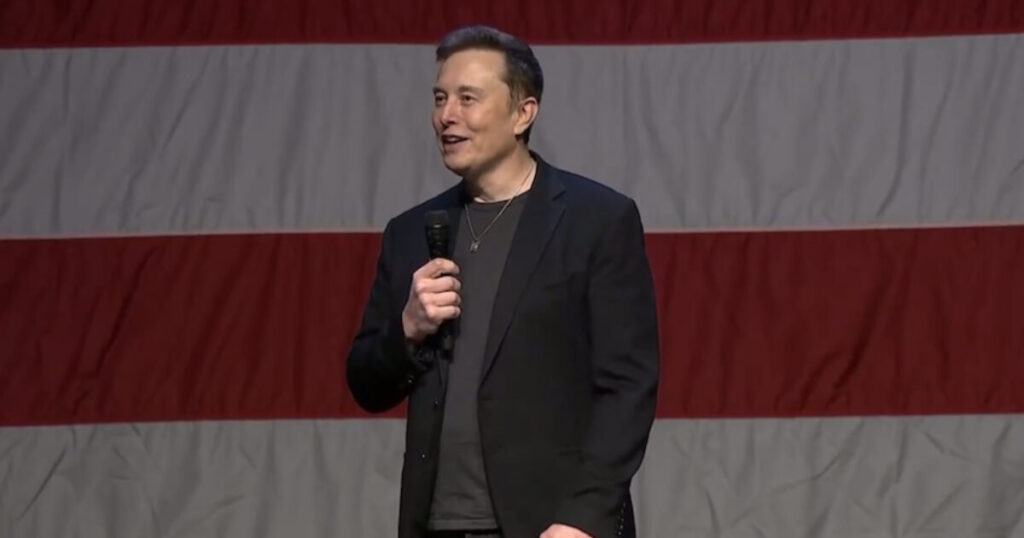On October 20, 2024, Elon Musk, the world’s richest man and a pivotal supporter of Donald Trump during his presidential campaign, held a town hall in Pennsylvania expressing his ongoing opposition to leftist policies. Musk, who has recently assumed a significant role in the Trump administration as the head of the Department of Government Efficiency, announced his intent to fund primary challenges against “radical Democrats.” This announcement followed criticism from Democratic Congressman Richard Neal, who lamented Musk’s influence on Republican members of Congress, suggesting that Musk’s tweets could sway GOP lawmakers to capitulate to primary threats. Musk’s bold retort highlighted his strategy to not only challenge left-wing incumbents but also support moderate candidates in heavily Democratic districts, showcasing his commitment to reshape the political landscape to reflect his views.
Musk’s growing political involvement has sparked considerable concern among Democrats, who fear his financial resources and sway could disrupt traditional power dynamics within their party. With an estimated net worth nearing half a trillion dollars, Musk’s backing could heavily impact numerous elections, with his funding capable of propelling moderate candidates to victory in areas historically dominated by liberal incumbents like Richard Neal. Neal’s sustained role in Congress, marked by his liberal voting history, positions him as a key target in Musk’s campaign against what he perceives as inadequate representation for constituents. This hostility toward entrenched liberal figures is emblematic of a broader Republican strategy to capitalize on discontent with Democratic leadership.
Amid Musk’s aggressive political posturing, there is an underlying irony in the Democratic Party’s complaints about billionaire influence in politics. The party has historically benefited from substantial financing from notable figures such as George Soros and Bill Gates. This contradiction raises questions about the moral high ground that Democrats claim regarding campaign finance and the implications of monetary influence in shaping political outcomes. Musk’s recent activities, particularly his purchase of Twitter—now rebranded as X—have been posited as instrumental in securing Trump’s victory over Kamala Harris. The banishment of censorship from the platform has facilitated a freer exchange of ideas, enabling conservative narratives to gain traction and potentially disrupting the dominance of liberal ideologies.
Musk’s efforts extend beyond American politics; he is actively engaging in geopolitical discourse, drawing interest with his criticisms of far-left tendencies in Europe. Specifically, he has pronounced support for the Alternative for Germany (AfD) party, suggesting that mainstream German parties’ approaches to governance are outdated and ineffective. His remarks position him as a counterweight to traditional political narratives within Europe, advocating for a more populist, nationalist approach in response to perceived failures of existing political structures. This stance aligns with a broader trend of rising conservative movements across the globe, as populism gains traction in response to disillusionment with established political entities.
The strategic implications of Musk’s actions cannot be overstated. By positioning himself as a champion of moderate and conservative values, he aims to galvanize voter bases that feel underrepresented by current leadership. His philanthropic and political investments signal a shift in the tide, where successful business leaders leverage their resources to influence political landscapes directly. This trend towards billionaire involvement in politics raises pertinent questions about the future of democratic processes and voter agency, provoking debates about the efficacy of grassroots movements in the face of such overwhelming financial power.
As Musk continues to flex his political influence, the repercussions are likely to ripple through both domestic and international arenas. With an increasing number of political races likely influenced by his financial and social capital, competitors within the Democratic Party may face greater scrutiny and challenges from both within and outside their ranks. The results could shift the balance of power in various legislative bodies, reflecting broader societal movements and attitudes towards governance and representation. The ongoing dynamics signify a transformative period in American and global politics, wherein traditional paradigms are being tested against the backdrop of increased wealth influence and political engagement from private individuals.

